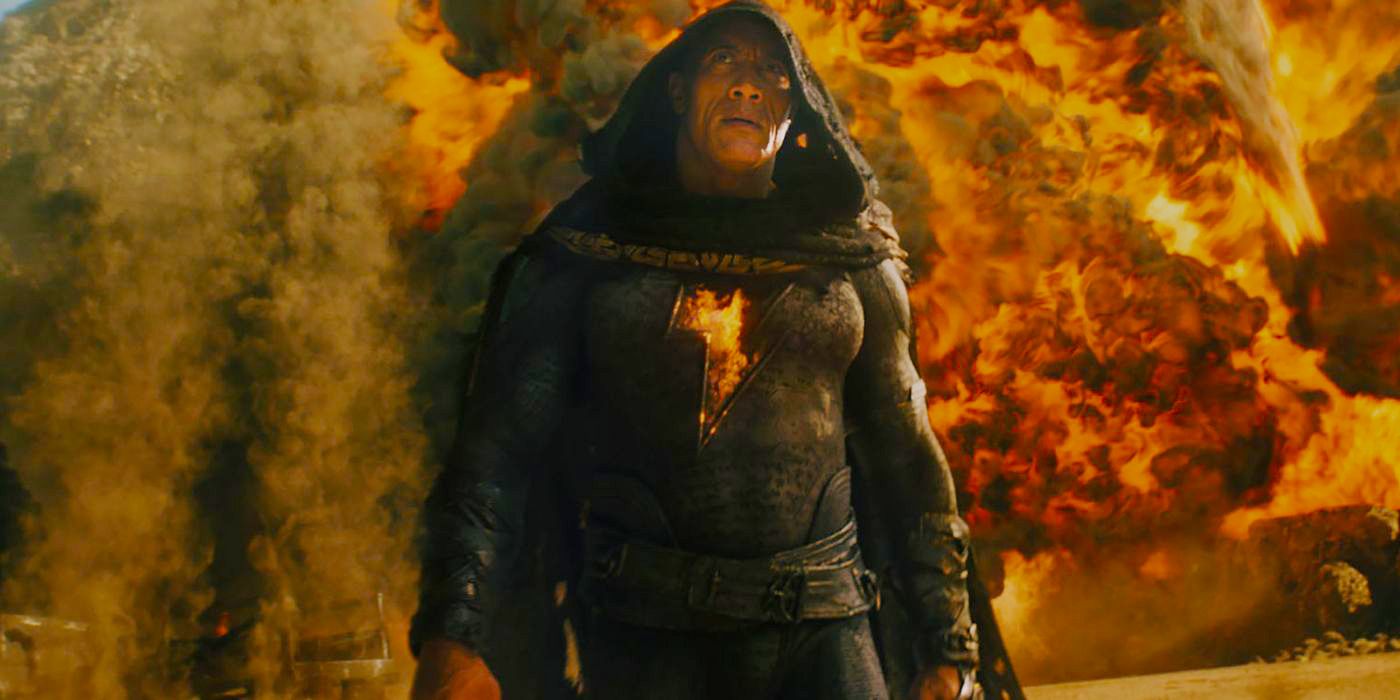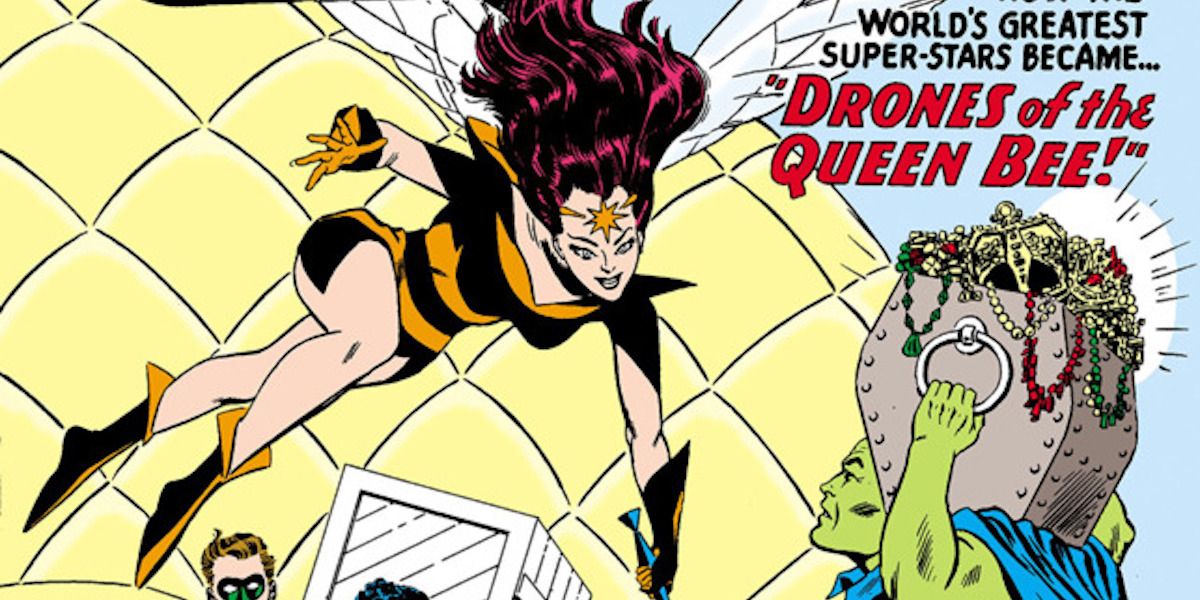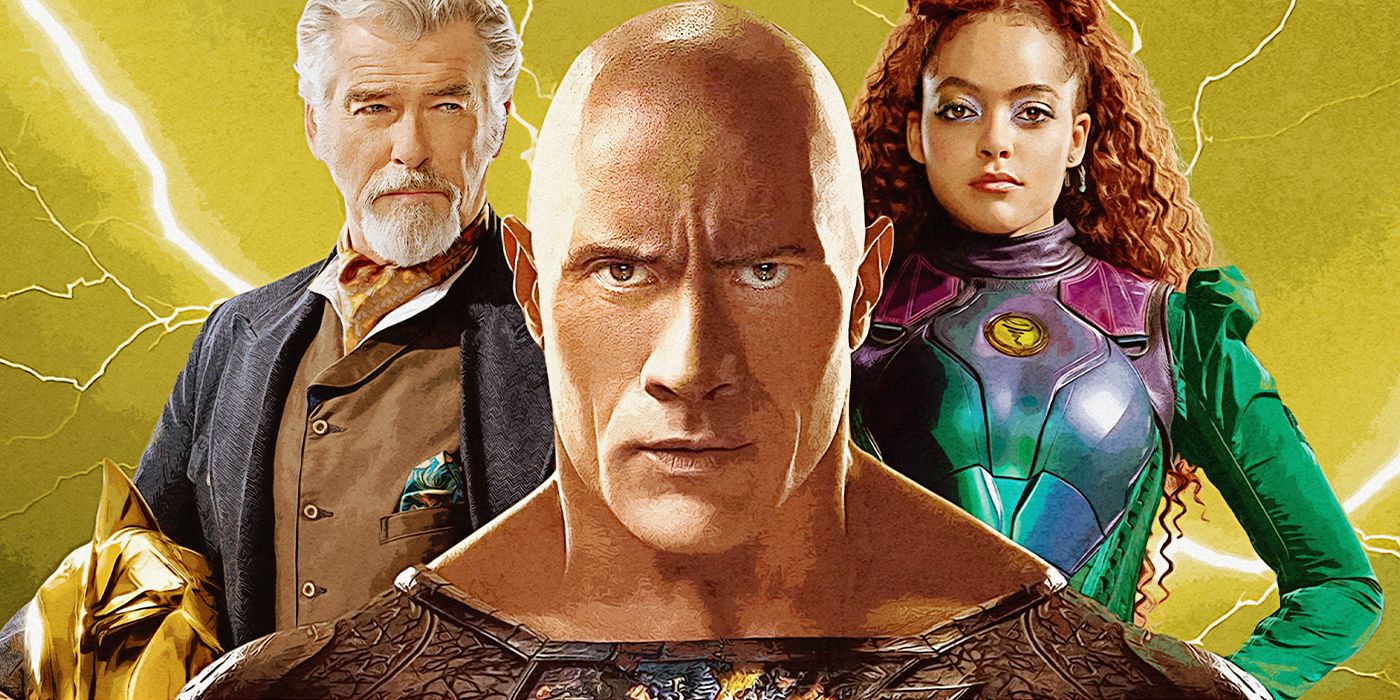At long last, Black Adam is coming to the big screen, thanks to star Dwayne Johnson and director Jaume Collet-Serra. The recently released trailer for the October feature promises that we will be seeing all facets of Adam – hero, anti-hero, villain. But to what degree? The answer to that is tied to his statement about killing people in the trailer. It’s possible that he kills a few before reevaluating his stance. It is also possible that ‘killing people’ is a dramatic understatement, with a history in the comics that includes murdering the entire country of Bialya. An easter egg that references the country in Wonder Woman 1984 brings it into the DCEU, so it isn’t a stretch to see the story played out in Black Adam to some degree. To understand Adam's actions is to first know the history of Bialya, a country in the Middle East that lies north of Iran and Saudi Arabia (and is an anagram of Libya).
Bialya first appeared in the pages of DC's Justice League, a militaristic state, overrun by poverty and political strife, led by Col. Rumaan Harjavti. In an effort to turn Bialya into a major world power, Harjavti worked with a former member of his harem, a woman known as Queen Bee. Queen Bee, with the help of an alien scientist, developed technologically advanced brainwashing techniques she used to control super-humans, including Wandjina, a superhero from Angor that she used to assassinate Colonel Harjavti at a public demonstration.
Queen Bee appointed herself the new ruler of Bialya, instituting programs that turned the violent ghetto into a seeming paradise, akin to the French Riviera. She opened Bialya's doors to welcome commerce and trade, instituted free food programs, twenty-four hour free health care for its citizens, cultural exchange benefits and an employment rate of 100%. However, behind the idyllic facade was a troubling, unethical truth. Queen Bee had developed an implant that increased a person's endomorphin levels electronically while in Bialya, but would cease if the person left the country, essentially creating an addiction to living in the country. While this did draw the attention of the US Government and the Justice League, they were reluctant to take action due to the threat of an international incident. Queen Bee was eventually deposed and replaced by Queen Bee IV, her sister. The new ruler was also deposed, to eventually be replaced by a new government under President Rashid. Just before the reign of President Rashid is where Black Adam's story intersects with the country.
Black Adam, his wife Isis and his brother-in-law Osiris were the guardians and rulers of Kahndaq, with the yin of Adam's draconian laws tempered with the yang of Isis and Osiris' goodness. Soon, Kahndaq would find itself attacked by the Four Horsemen of Apokolips, artificially enhanced beings based out of Bialya. Osiris is killed by Famine, the Fourth Horseman, and Isis is infected with a deadly disease by Pestilence before Adam kills him and his partner War. Before dying, Isis pushes Death away from Adam, and with her last words tells Adam that he should avenge both her and Osiris.
Driven mad and sickened by grief, Adam follows Death to Bialya. Certain that Death is being harbored by the people of Bialya, Adam proceeds to lay waste to the entire 2,000,000+ citizens of the country — men, women, and children — before finding Death, defeating him with a barrage of mystic lightning and, finally, killing him. There is question as to if the event is still canon, but if we assume that it is, what does that mean for Black Adam, and what does that mean for the DCEU in general?
Mass genocide on film would seem to be a dicey proposition for DC. The uproar after Superman (Henry Cavill) killed General Zod (Michael Shannon) in Man of Steel was intense, and still argued to this day, and that was a hero taking action for a good reason, however divisive. While Black Adam is hardly the Boy Scout that Superman is, it would still be an odd path to take for a company that is carefully trying not to alienate their fan base. It would also seem to fly in the face of Dwayne Johnson's brand. Despite his insistence that Black Adam is different, and open to killing, his output to date has rarely ever pushed past family-friendly or PG-13 levels of violence. And as far as the current state of the world, the persecution of innocents is at the immediate forefront of media, with stories out of the US and Ukraine gaining worldwide derision for those responsible. The anti-hero still lives, but only in an environment where those that deserve punishment receive it.
There are a couple of different ways that DC could go about this storyline. It could be a plot device in the movie, but severely downsized. Isis and Osiris are still killed, Adam still finds Death in Bialya, but instead of murdering millions he kills a single family or person, representative of the millions, innocents that are unaware Death has chosen to hide in their home. Still reprehensible, but could set Black Adam on a path questioning his hardened stance, his conversation with Hawkman (Aldis Hodge) a point before this happens. There is precedent — DC's Peacemaker series had Peacemaker (John Cena) questioning his hard-line when kids became involved.
There is another alternative that may not even involve Black Adam at all, yet still ties into the DCEU. Bialya also happens to be where archaeologist Dan Garrett discovered the Blue Beetle Scarab while unearthing the tomb of Pharaoh Kha-Ef-Re, giving him the powers and costume of the Blue Beetle, which over time makes its way to Jaime Reyes. Jaime Reyes is the Blue Beetle in the upcoming 2023 DC film Blue Beetle, played by Xolo Maridueña. The reference in Wonder Woman 1984 may have nothing to do with Black Adam at all, but instead it sets up the origins of the Blue Beetle in the film. Black Adam doesn't even use the storyline, so no messy genocide, and the country has been referenced at least once prior to the future DCEU release.
All of this is, of course, which won't be answered until Black Adam hits theatres in October 2022. It will be very interesting to see how this piece of the Black Adam story is handled — in full, in part, or not at all. Let the speculations commence.



